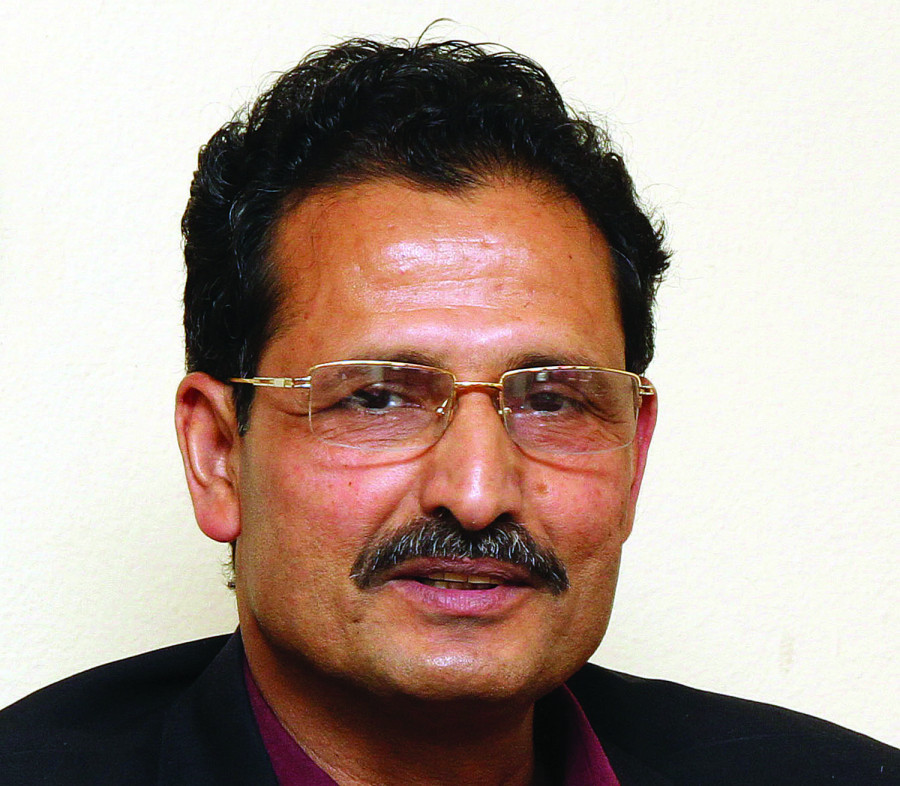Editorial
Proposing a murder accused for Speaker is mocking public opinion
The ruling party’s decision to propose Agni Sapkota is doing Parliament no good. In fact, it is self-destructive.
The ongoing saga about the Speaker and the resistance exhibited by Deputy Speaker Shiva Maya Tumbahangphe by refusing to step down until the ruling party had decided on a name long dominated the headlines. The ruling party’s indecision also held Parliament hostage for an extended period; but at the same time, the episode displayed Tumbahangphe’s character as someone who was willing to stand up for what she believes in. On Monday, this interesting chapter in Nepali politics almost came to end. But it wasn’t an end most had wanted.
The Nepal Communist Party's choice, Agni Sapkota, had been a probable candidate for Speaker since the beginning. But there was a reason why that name had been resisted for so long—he faces a murder charge for an insurgency-era killing, and many believe that such a person should not be holding the prestigious position. However, Prime Minister KP Sharma Oli and co-chair of the ruling Nepal Communist Party, Pushpa Kamal Dahal, do not seem to think so. They went ahead and proposed Sapkota’s name for Speaker, ignoring civil society members and the wider citizenry’s voice.
Former House speaker Krishna Bahadur Mahara had resigned following rape allegations by a woman who works at the Parliament Secretariat. And now the ruling party’s decision to propose Agni Sapkota is doing Parliament no good. In fact, it is self-destructive. What’s more, it has only forced the country towards darkness fostering a culture of impunity. It ill behooves this high office and leaves conflict victims betrayed. There’s no way the citizenry and lawmakers too can bestow trust upon someone who lacks a moral compass to uphold the constitution and guarantee the rights provided by the state.
Democracy might be a robust political form, but its actual mechanisms might not necessarily be about principle-driven behaviour or perfection of governance. High levels of corruption, political violence and the entry of criminals into Parliament are examples applicable to many democracies today. A watchful Parliament gives confidence to the people and supports democracy. But the decision to propose a murder accused as Speaker is the opposite of enhancing democracy.
Further, the ruling party's general secretary Bishnu Poudel said there were no cases pending against Sapkota in court. That is a blatant lie, and spreading such misinformation to conceal the party’s decision is outright wrong. Sapkota became a member of the Maoist party in 1995. A year later, in 1996, the party launched an armed rebellion against the state. Arjun Lama was kidnapped and murdered on April 29, 2005 at the height of the insurgency, allegedly by Sapkota and Surya Man Dong, another Maoist leader. Sapkota might have committed a sin during the insurgency-era. But by proposing his name for the post of Speaker, the ruling party is equally sinful.
The government must revisit its decision and show respect for the post of Speaker. The Speaker of Parliament should be someone who represents the collective voice of the people and upholds the rule of law, not someone who displays disregard for the system and its rules.
***
What do you think?
Dear reader, we’d like to hear from you. We regularly publish letters to the editor on contemporary issues or direct responses to something the Post has recently published. Please send your letters to [email protected] with "Letter to the Editor" in the subject line. Please include your name, location, and a contact address so one of our editors can reach out to you.




 18.12°C Kathmandu
18.12°C Kathmandu














